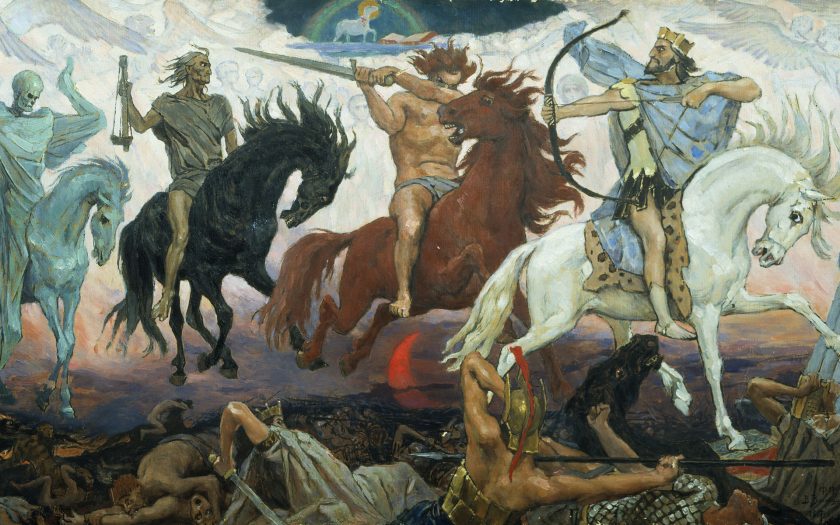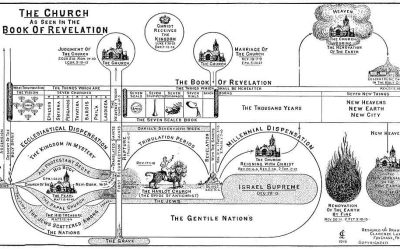What is happening in the world, in Christendom and in Israel? Are they things that we can put into a prophetic Biblical perspective? We have been working on the book of Revelation for a few months now. This time the question is to what extent we can place the four horsemen from Revelation 6 in our modern age. We think we can, and indeed, as far as I can tell, the fourth horseman is at work in this 21st century.
It's a fairly long story, so brace yourself.
One hundred seventy-five fulfilled prophecies
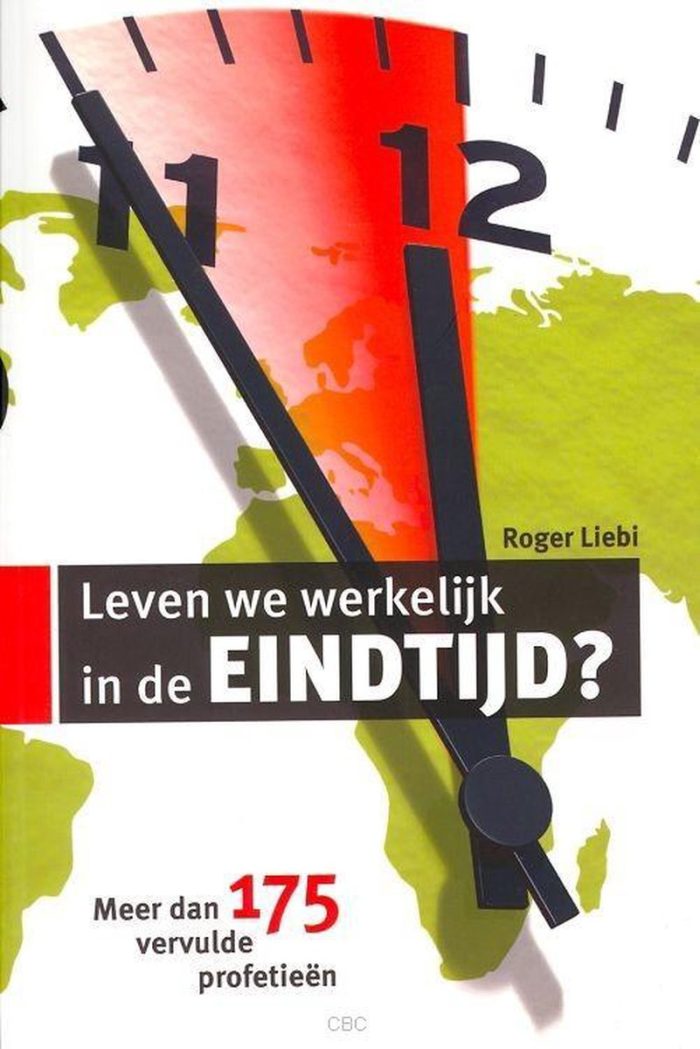
It has been ten years since the Dutch version was published of Roger Liebi's book "Are We Really Living in the End Times?" subtitled 'More than 175 Fulfilled Prophecies'.
I remember reading it then in one sitting. The reliability of the Bible is tremendous and it is fascinating to read how it fits historical reality.
The book's back cover states the following:
"In this book, the author covers more than 175 prophecies that all relate to the 'end times.' He shows that these prophecies have come true in the era of world history in which we live - from 1882 to the present."
The book shows how many of the Bible's prophecies concerning the end times have already been fulfilled, if you put them against history. Then it becomes clear what we have already had. But still you don't know then how long it will be until the next prophetic milestone and in what way it will then be reached.
The one who writes such a book must know the Bible well as well as history. The one who reads the book will usually know the Bible well enough to judge the biblical side. But whether the historical side is correct? Some things I knew, but a lot I didn't. Then I just have to trust the reliability of the writer. Besides, if there were 50 errors in Liebi's book, the message was still convincing.
We can look back in the prophecies, for they give light in the darkness, as Peter put it:
“And we have the prophetic word, which is sure and certain, and you do well to heed it as a lamp shining in a dark place, until the day dawns and the morning star rises in your hearts." (2 Peter 1:19).
That is the goal: to know approximately where we are so that our hearts already see the Morning Star!
The seven churches
In Revelation 2 and 3, letters are written to the seven churches in Asia Minor.
First of all, of course, these were letters for the congregations that existed there at the time. Each letter describes things they should recognize and the admonitions they should take to heart.
But in addition, these letters are often seen as church history. Fruchtenbaum, in his aforementioned book, devotes about 50 pages to describing them. The structure he gives is roughly as follows:

There are several of these diagrams and the years or periods may differ somewhat. But that makes no difference to the idea that this is also history of the "Christian church. At least, for us now, it is largely history. We can say - and we see it around us - that we are in the age of Laodicea.
But at the time they were written, the seven epistles could only be read by believers as something specific to them in their apostolic time. It was not then possible to see prophecy in them and to "predict" the course of church history based on them.
But afterwards, you can put the history next to it and see if the letters have prophetic value as well.
A believer who lived, say, in the year 1300, might in this way, discover that the prophetic times of Ephesus, Smyrna and Pergamus had already been. He would discover in Thyatira that that was very much like the situation in his day, but about the remaining three he would have little to say.
When we look at this timeline and the situation in Christendom today, one can only conclude that we are living in the time of Laodicea. People do not see the destruction in Christendom and think they are rich and have everything. But the Lord will have to spit them out of His mouth (Revelation 3:16).
So again, it is that you can look back into what has been prophesied in order to look forward to what is to come and look forward to the coming of the Lord Jesus. Without being able to predict future - the way there - nor its length.
Every now and then the feeling creeps up on you: the Lord is coming soon!
We will all recognize it. That something happens that startles you and makes you feel that it is something that nevertheless has to do with the coming end of this age. No doubt these are events like 9/11, the corona pandemic or very recently 10/7, the raid Hamas committed on Israel. By the way, the whole world is shocked by it and as a believer you involuntarily think of biblical things. Then we say to each other: it won't be long before the Lord comes!
But the same feeling my grandparents had when World War II had begun. My grandfather wrote in a letter to my father who had been called up for military service in late 1939 the following words, among others:
“The storms are raging with increasing force; God knows what is yet to come. Yet we know that everything goes according to His order, in which He also makes use of Satan's wiles and the wickedness of man. But through it all, His counsel will exist and He leads everything to the fulfillment of the prophetic word. For us, however, it is necessary to listen to what He has to say to us and be vigilant to be prepared for Jesus' coming, so that wherever we are when He comes, we can meet Him.“
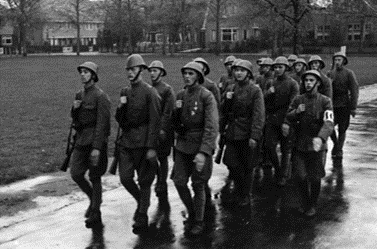
Anno 2023, you then wonder if in terms of the fulfillment of the prophetic word, you can see how far we are even now. I think it is possible to some extent and that is why I would like to share a bit about a book I read recently.
A book with special content
It's about a book1 which I discovered in September with a vision of the four horsemen from Revelation 6. On the back cover is a text that invited me to go read it:
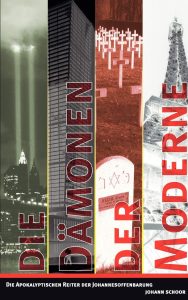
“Could it be that biblical prophecies are being fulfilled before our eyes and we don't even realize it yet? The author is convinced of this: the four horsemen of the Apocalypse from John's Revelation have already ravaged the world in part.“.
What I found here was very convincing as far as I was concerned. An analysis that shows that the four horsemen can very well be placed in modern times2, which is the time from the end of the 18th - or the beginning of the 19th - century to the present. The author - Johann Schoor3, an Austrian pastor - did not write this book after a year of study, but spent some 25 years tracing history in the light of the Bible4. He hesitated for a long time to publish it because he wanted to be sure of his case. It was finally published in 2011 because he wanted to leave it to his children and his brothers and sisters in Christ.
could it be that
the four horsemen of the apocalypse are already plaguing the world?
After reading about the interpretation of modern times in light of "the four horsemen," I went looking again in the Bible for symbolism. This is how I came to the symbolism of both the sealed scroll and the symbolism of horse and rider, about which in the previous blog was written. That fit wonderfully which made many things fall into place.
For myself, it became a complete painting of the times in which we live and a renewed looking forward to the Lord's coming for His church. For suppose the fourth seal has already been broken, you can't say it will last very long, can you? Be that as it may, the Morning Star is rising in our hearts and that is what it is intended to do (2 Peter 1:19).

A brief overview of the four riders
Probably, as a critical reader, you are now asking me to explain that convincingly. The problem is that I can't do that, simply because I am incapable of summarizing 120 pages of all kinds of historical details properly. That's just not going to work. Actually, any interested person should read the book himself (in German or English). It would be even better if there were a publisher who would be willing to publish a Dutch translation of the book.
Nevertheless, we must give an impression of how Schoor sees the four horsemen. In doing so, I cannot avoid weaving in some of my own thoughts here and there.
First, a diagram and a brief explanation for each phase.
| The White Rider | The Red Rider | The Black Rider | The Pale Rider | |
|---|---|---|---|---|
| Revelation | 6:1,2 | 6:3,4 | 6:5,6 | 6:7,8 |
| Characteristics | Bow, crown and victory | Peace gone, people slaughter each other | Weighing scale, poverty and luxury | Death in various ways, one-fourth of the earth |
| Development | Global ideological deception | Global revolutions and world wars | Global economy/capitalism brings prosperity and poverty at the same time | Global mortality from various causes |
| Period | The Enlightenment5 | The World Wars | Capitalism | The Terrorism |
| Time | 19th century | 20th century | From the mid-20th century onward | From the beginning of the 21st century |
Globalization is the common characteristic of all four riders. So they are developments that affect the whole world. The work of the horsemen affects the whole world. The things they do were present before, of course, but from the first horseman on, these things begin to influence the whole world with full force.
Below I try to mention some things from Schoor's book for each rider without daring to say that this is a good summary. But most of the focus is on the white rider, because it lays the foundation for everything that comes next.
The rider on the white horse - the Enlightenment
“And I saw, and behold, a white horse, and He Who sat on it had a bow. And He was given a crown, and He went forth, conquering and to overcome." (Revelation 6:2).
The Enlightenment6 in the period of the 18th and 19th centuries definitively swept away the biblical foundations that had hitherto still stood beneath the social scene. Even though not everyone believed in them in a personal way, up to that time people accepted the following four paradigms7:

- Faith in a Creator-God to whom man is accountable with his conscience.
- Faith in Christ, that He is the Son of God, born of a virgin and therefore the only human being who has ever lived without sin.
- Faith in the Word of God, the Bible, which gives us the only reliable testimony to what God has done in the past and will do in the future.
- Faith in a necessary redemption of man, because a holy God will one day have to judge the world and man cannot stand in this judgment.
But on this Satan could not build his kingdom, and therefore this biblical foundation had to be knocked away first. This happened in the Age of Enlightenment.
Schoor actually limits himself to the 19th century and sees this as the apostasy of the Christian belief system. In a hundred years, a completely different world emerged, he writes. Further:
"Eventually everything will apparently change; God has determined it that way from the beginning. In fact, unlike the centuries before, Christianity will become an annoyance (a stumbling block). And through false prophets, false Christs and false Christianity8 - possibly even by new alternative teachings of salvation - Christianity as we know it will disappear completely from society. This means that paradigms inspired by Holy Scripture will be abandoned and it will become more difficult to live as a professing Christian, as the Bible describes Christianity. This is the victory of the white rider! He introduces name Christianity by removing the paradigm of Christian doctrine from the context of society."
By individuals still known today, theories were developed and discussed that changed people's entire thinking and are still operative and recognizable today.
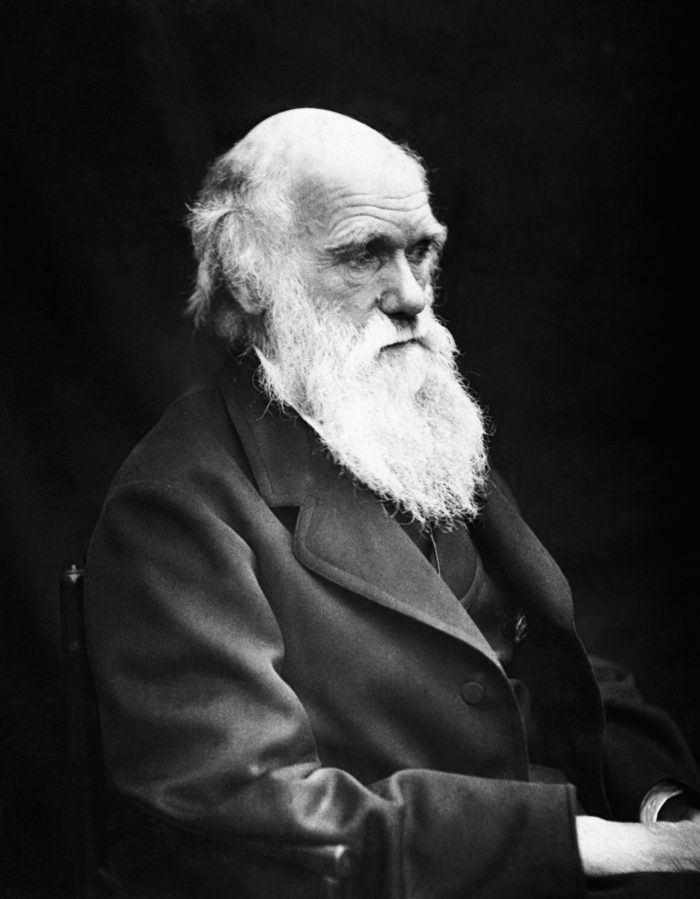
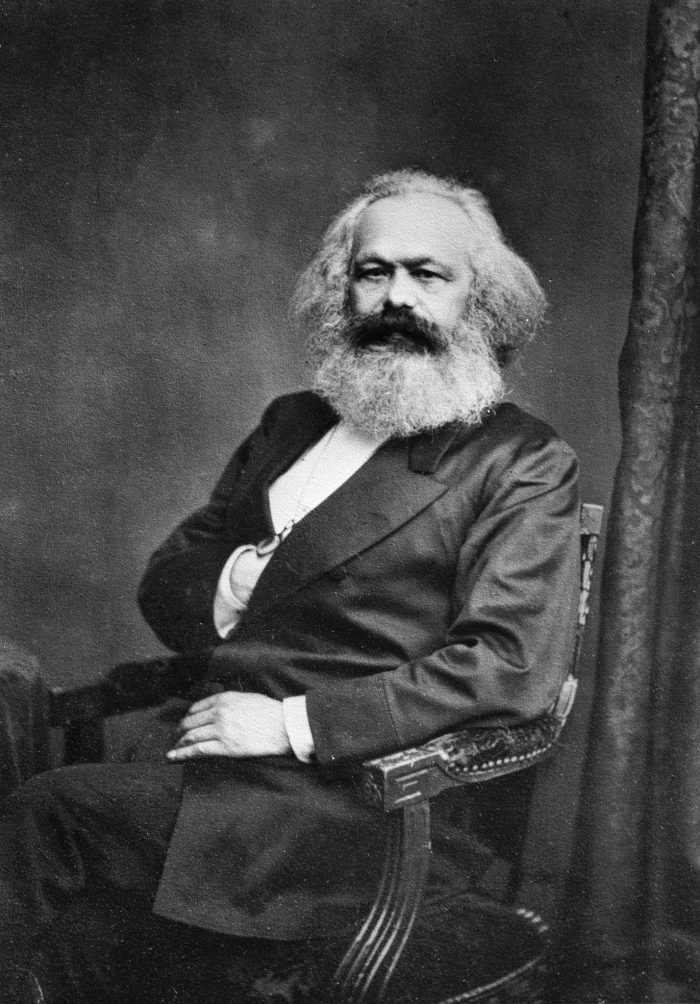
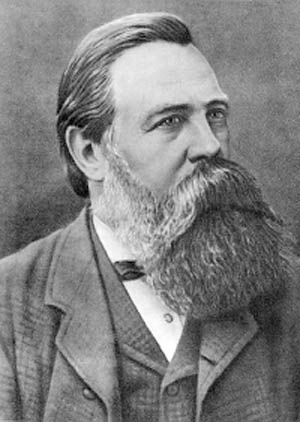
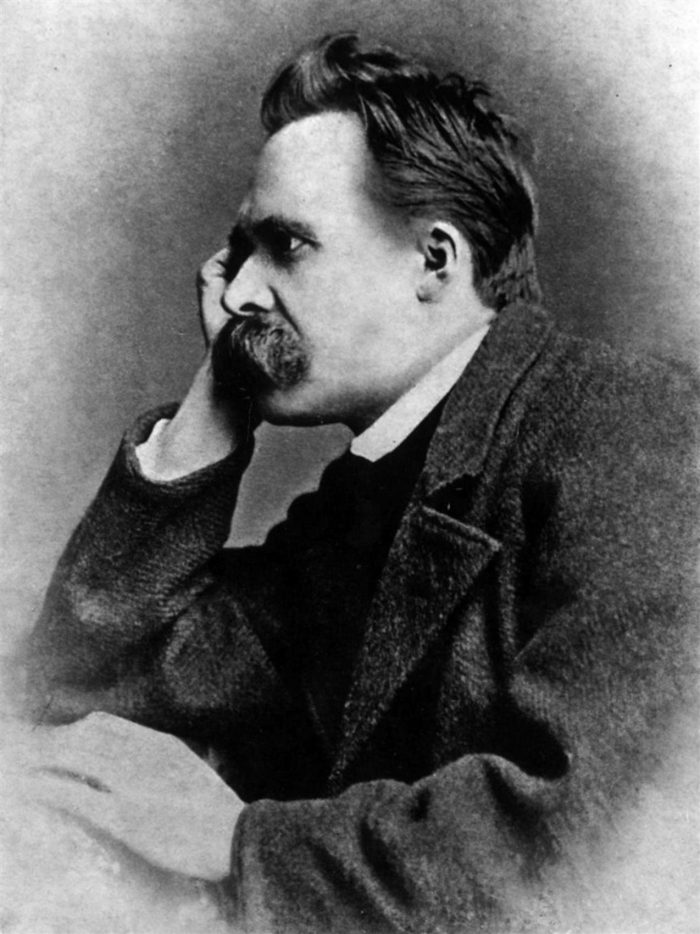
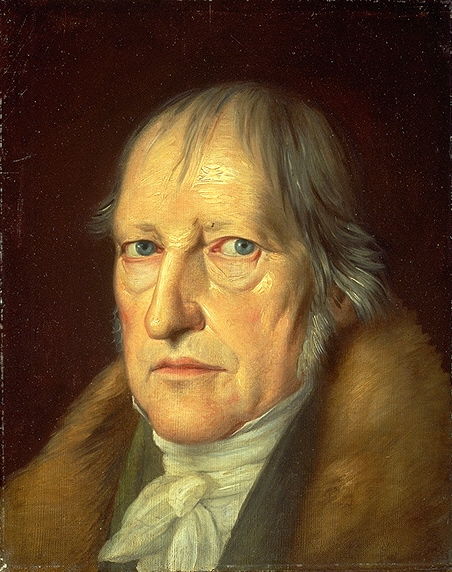
This thinking without biblical foundations or biblical boundaries developed into all kinds of views that are still shared by (almost) all people. Just think about the theory of evolution, but also Social Darwinism and the idea that there are ordinary people and übermenschen. Or the philosophies about the organization of society and the economy; communism, liberalism, socialism and so much more. All human theories and philosophies that make their mark through the world to this day and cause much strife and misery.
In essence, they are all attempts to replace the biblical foundation under society. For a human society cannot function harmoniously without a foundation or a common "faith.
That this produced nothing but strife and misery is clear, especially when you see that out of it in the 20th century came both World Wars.
The enlightenment removed the biblical foundation under society but was unable to lay a new and solid foundation,
so that great instability and chaos was the result.
Apparently that was Satan's intention as well.
Schoor concludes this section of the white rider as follows.
"But many, far too many, are infected with this sweet poison and trapped in the temptation of an autonomous life. As with Adam and Eve in the beginning, the enemy has succeeded in making people believe that a life without God makes them a god. And just like in the past, nothing came of it. What actually happened was the renewed subjugation through anti-Christian, neo-pagan9 systems that devalued every aspect of human life. The second horseman, the red one, was already prepared to lead the masses of people to their doom who thought they were free but were actually slaves to sin. His predecessor had prepared the ground on which his destructive work would grow."
What I (TdJ) would like to add is that the 19th century was not only the time of the Enlightenment, but two remarkable things happened during that same period:
- The first is that toward the end of the 19th century, Zionism emerged, the political movement that sought to enable Jews to have their own state. This eventually led to the proclamation of the state of Israel on May 14, 1948, in the area designated as a Jewish state by the United Nations.
- In the Age of Enlightenment - parallel to social de-Christianization - liberal theology and social theology also emerged. Yet God in His grace still provided much renewal and blessing during that time, just think of the many revivals, missionary movements, the Revival and also the brotherhood movement. It was the time when biblical eschatology (the doctrine of the future) and the rapture of the Church came under the spotlight again.
The rider on the red horse - the World Wars
In this chaos of thought worlds, in which man had become autonomous and was allowed to determine his own destiny, the question for the rulers was how they could contain this chaos. Wars were the result, with the First and Second World Wars often seen as one big war.
“And another horse, which was red, drew out, and to him who sat on it was given power to take away the peace of the earth, and to make men slaughter one another. And to him was given a great sword." (Revelation 6:4)
Schoor hereby writes the following: "The red rider is given a great sword to remove peace from the earth. But not he has to fight, but people have to slaughter each other. He only removes peace, but from the whole earth, worldwide, that is his power. The great wars in history were not world wars, and could not be because the infrastructure and technological capabilities were not there until the 20th century."
Description of causes of world wars from Enlightenment perspective (click for more details)
- National conflicts and imperialism: An intense period of imperialism took place during the 19th century, with European countries conquering and colonizing overseas territories. This led to rivalries and tensions between countries in the pursuit of territorial expansion. The nationalist sentiments that emerged during this period also contributed to conflicts between states.
- Economic tensions: The Industrial Revolution, which began in the 18th century but peaked in the 19th, led to economic competition between nations. Economic interests and conflicts over trade routes and markets contributed to tensions between the major powers.
- Alliances and militarization: In the run-up to World War I, complex alliances between European countries emerged. The system of alliances, along with the arms race and militarization of European powers, made the region vulnerable to large-scale conflict.
- Ideological and philosophical influences: The ideas that emerged during the 19th century, such as nationalism, socialism and Darwinism, were sometimes misused to justify political agendas. For example, Darwinism was misunderstood and twisted to justify racial superiority, leading to racist ideologies that played a role in the rise of totalitarian regimes.
- Treaty of Versailles: The aftermath of World War I, particularly the Treaty of Versailles in 1919, imposed heavy sanctions and reparations on Germany. This laid the groundwork for economic hardship and political instability, which in turn contributed to the rise of Nazism and World War II.
It is important to note that these factors and developments did not necessarily have to lead to war, but political and diplomatic missteps, combined with complex and interacting forces, paved the way for the outbreak of conflict. World War I, in turn, led to conditions that enabled the rise of totalitarian regimes and World War II.
World War I is estimated to have caused some 15 to 23 million deaths. In World War II, it was 70 to 80 million, with the greatest losses occurring in the Soviet Union, China, Germany, Poland and Japan. Incidentally, most of the casualties were always among the civilian population.
The First World War solved nothing, rather increased the enmity between nations. The time between the two World Wars saw the growth of National Socialism, as well as the Germanic occultism of Guido von List (1848-1915). In his Neo-Pagan philosophy, he saw the coming of the next world war, a Germanic savior and a Germanic class of priests. This occultism also gained adherents in Nazi circles.
At the end of this section, Schoor writes:
"With 6 million victims, the Jewish people, to which our Lord Jesus Christ belonged, were also affected. Only someone with knowledge of the Bible can fathom the anger and helplessness expressed here. The red rider was very busy. His work would change the world forever. But to what end? Both world wars prepared the way for the activities of the next horseman - the black one."
Effects of World War II ( click for overview)
World War II, which took place between 1939 and 1945, had profound and lasting effects on both a global and regional scale. Here are some of the most significant impacts:
- Political and territorial changes:
- Europe was divided between the Allies and the Axis powers after the war. Germany was divided into East and West Germany, and the capital city of Berlin was also split.
- The United Nations (UN) was established in 1945 to promote international cooperation and peace.
- Many former colonies in Asia and Africa seek independence, inspired by the principles of self-determination emphasized during the war.
- Cold War:
- The relationship between the United States and the Soviet Union deteriorated after the war, leading to the Cold War. Ideological contradictions between the capitalist West and the communist East led to an arms race and conflicts around the world.
- Economic Reconstruction:
- Europe underwent extensive reconstruction after the war, spurred by the United States' Marshall Plan. This led to economic recovery and the creation of the European Community, a precursor to the European Union.
- Technological developments:
- The war stimulated technological advances, particularly in aviation, nuclear technology and electronics. These advances would later contribute to space travel, the information revolution and medical developments.
- Human rights and international law:
- The atrocities of the Holocaust and other war crimes led to the establishment of the International Criminal Court and the development of the concept of human rights as an international norm.
- Imperialism and decolonization:
- Many colonial powers had been weakened by the war, and colonies began striving for independence. This led to the decolonization of Asia, Africa and the Middle East.
- Moral developments:
- The horrors of war brought a greater awareness of human rights and ethics. The United Nations Charter and the Universal Declaration of Human Rights were adopted to provide a basis for international standards.
All in all, the events of World War II had profound and diverse consequences that influenced the course of world history in political, economic, technological and moral terms.
The rider on the black horse - Capitalism
When Schoor wrote the book, he was convinced he was living in the era of the black horseman. For him, that was the reason for waiting to publish the book, because he first wanted to have the necessary distance from history to make good and reliable observations.
“And I saw, and behold, a black horse, and he that sat on it had a scale in his hand. And I heard a voice say in the midst of the four beasts, A measure of wheat for a penny, and three measures of barley for a penny. And do not harm the oil and the wine." (Revelation 6:5-6).
According to Schoor, the scale is an instrument of the merchant. The latter trades goods, weighs them and sets the price.
He sees in it an image of world trade and industry. After all, the wars had made it clear that there was no solution in that and that you could not expand your power with arms. But you could when you did so with trade.
Thus, all kinds of relationships between countries - trade treaties - emerged to jointly benefit from international trade. At the same time, large international companies, both trade and industrial, emerged.

The question of where you sell your goods is easy to answer, namely where you get the best price. That meant that the rich countries could buy what they needed and the poor countries remained poor. Not only that, but the latter also saw their own food disappear to the rich countries.
Schoor describes at length how economics is used to create and maintain power relationships. US Marshall Aid to Europe after World War II was mainly aimed at keeping the Soviet Union at bay. The industrialization of poor countries gets underway while those countries have to take out loans for it from other countries or the World Bank. This makes them dependent on the rich part of the world.
Examples abound in this area, and Schoor discusses them at length.
For example, Schoor gives the following example (page 107):
"One might ask why Third World countries based primarily on agriculture cannot make a living. The answer, which has actually already been given, will be made clear again using an example from the Netherlands: A Dutch exporter, with a proud look on his face, tells in a documentary that 90 percent of onions grown in the Netherlands are exported to the Third World, mainly to Africa. One of the main destinations is Senegal. The scene switches to Senegal. There it is reported that not only onions, but especially potatoes, which are cheaper than homegrown products, are imported from the Netherlands. The camera moves over a large wasteland where it is barely recognizable that the land was once cultivated. The farmers who once worked this land were forced to give it up and move to the city.
Then comes the explanation, which I would like to quote word for word: "[...] because import duties are kept low in poor [countries] under pressure from rich countries. Overproduction by EU agriculture is subsidized as much as exporting the surplus to the Third World. And the powerful lobby of the Western agricultural economy makes sure that as little changes as possible. In Europe, this is called open competition. But open mainly means access to Third World countries for goods from rich countries. Rich countries, on the other hand, protect their own markets by imposing high import tariffs."
Finally, a so-called quick fix to the problem is given. "The WTO (World Trade Organization) has decided after difficult negotiations with poor countries that all export subsidies should be eliminated by 2013. For the farmers, it is too late. Their livelihood has already been destroyed. Wide swaths of land in the Third World lie fallow. Farmers have moved away."
I have such a suspicion that much of the immigration from poor countries to the rich West was caused by the power- and profit-hungry capitalism of the West.
Schoor concludes the Black Rider with the following comments, among others (page 112).
"The entire capitalist system, like communism, is built on lies. Both systems revealed themselves in the era of the third apocalyptic horseman. Communism reached its end sooner than expected. Capitalism is expected to survive, but even here doubts are beginning to arise. Aren't communism and capitalism two sides of the same coin - materialism? Aren't these utopian ideas of the 19th century both wrong? Wasn't there a huge miscalculation when technology and economics were thought to create paradise on earth? The down-to-earth Englishman John Maynard Keynes published an article in 1930 entitled "Economic Possibilities for our Grandchildren10" in which he described the distant future and said that "in 100 years, that is, in 2030, our needs will be more or less satisfied and we will then be able to enjoy the good things of life, such as art, science, leisure and contemplation, and the economist will have the function of a dentist, correcting minor imperfections.“
But it wouldn't be like that.
The rider on the pale horse - the Terrorism
When Schoor wrote the book, he says, about the rider on the pale horse he could only say something about the text found in Revelation 6. He did not want to go further, because that would become too speculative. In the book he does not so very explicitly call the fourth horseman the rider of Terrorism, but on the back he writes, "with international terrorism the fourth horseman enters the scene." Reading the chapter, this title is more than appropriate.
"And I saw, and behold: a gray horse, and he that sat on it, his name was death, and the kingdom of death followed him. And power was given to them over the fourth part of the earth to kill with the sword, with hunger, with death, and by the wild beasts of the earth." (Revelation 6:8)

It is an incredible calamity coming upon people. In any case, the horror of these times is hard to imagine. A fourth11 proportion of people will perish, some 2 billion! The high mortality has several causes: sword, hunger, death (plague) and wild animals.
"The order is clear: every 4th person must be killed. With the current population, that's almost 2 billion people. Even if we assume that the horseman will take decades to make his doom, the death of 2 billion people will be such a horrible event that civilization will be largely destroyed. The world, as we know it, will no longer exist. It will possibly mark the end of the Age of Modernity."
The sword undeniably indicates wars, but they will be different wars than before. Not of two armies facing each other fighting over power over border areas, but the so-called asymmetrical war, similar to guerrilla warfare. "The preferred option is to commit terrorist attacks in the enemy's country. Unfortunately, it must be assumed that such resistance groups will network with each other to coordinate attacks on specific countries. (...) At least the intention to fight in this way was clearly demonstrated on Sept. 11, 2001."
Famines are also a cause of high mortality, and they need not only occur in Third World countries, but can also be caused by economic crises. Schoor points out that most countries have not guaranteed their own food supply. This leaves them unable to get through major disasters - earthquakes, volcanic eruptions or protracted political crises - without UN humanitarian aid.
Wars always result in famines and will continue to do so. But where there are now almost nowhere farmers who grow food for their countrymen, but only grow monocultures, they cannot meet the food needs of their fellow citizens either.
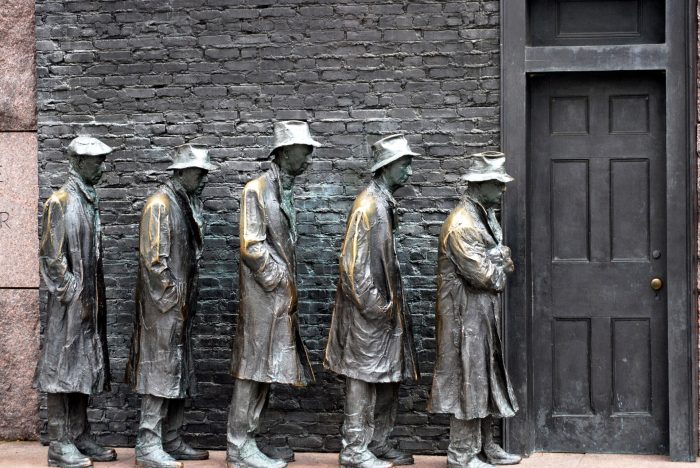
What is meant next by "death" is the question. Very likely plagues or deadly diseases are meant here12. After all, most people die normally as a result of disease. So the fact that "death" is the cause of mortality could simply mean that mortality rates are rising particularly sharply. The reason could be that there are more deadly and/or infectious diseases, but it could also happen because the health care system is collapsing.
Schoor also devotes further attention to use of ABC weapons13 and then writes: "In view of such situations caused by the plagues of the griffon rider, we must assume a total collapse of health systems worldwide; systems that in recent decades had raised life expectancy far above average. So even a simple flu will lead to death more often than it does now. Even regions that were protected from earlier manifestations of this era will be hit with higher mortality rates."
The meaning of wild animals is not entirely unambiguous. In Greek it is one word ("beast") and it denotes dangerous animals, or also poisonous animals (Acts 28:4,5). Schoor further mentions the possibility that the word beast is used for a person possessed by a demon. This is because he thinks there will be more possessed people in the end times, just as there were in the time of our Lord Jesus Christ. Among other things, he says this about it: "Possessed people are usually described in the Bible as having an urge to destroy and/or self-destruct (e.g. Matthew 8:28, Mark 9:17-18)." I think this connection is correct because the antichrist - used at one point by Satan himself - is also called "the beast" (Revelation12:9; 13:2).
Incidentally, among the wild animals, Schoor also mentions the global - networked and unscrupulous - criminality of drugs, human trafficking and the like.
Schoor ends this section with the following sentences:"It is pure anarchy - meaningless. Ideology has fled, but its legacy, violence, has been left behind. Nihilism has shown that there is nothing left and humanity has become a beast. How did Nietzsche put it? "Do we not wander as if through an infinite nothingness? Do we not feel the breath of empty space? Hasn't it grown colder? Doesn't the night constantly enclose us? [...] God is dead.”
Blasphemous scenes were shown at the opening of the Paris Olympics on July 26, 2024, including something in which many have seen and reference to the pale horse. It seems that Satan knows exactly what he is doing and is letting people know it.
Looking ahead to what is to come
In his book, Johann Schoor did not name the period of the sallow horseman, but "only" listed characteristics based on the Bible text of Revelation 6:8. We took a look at it above.
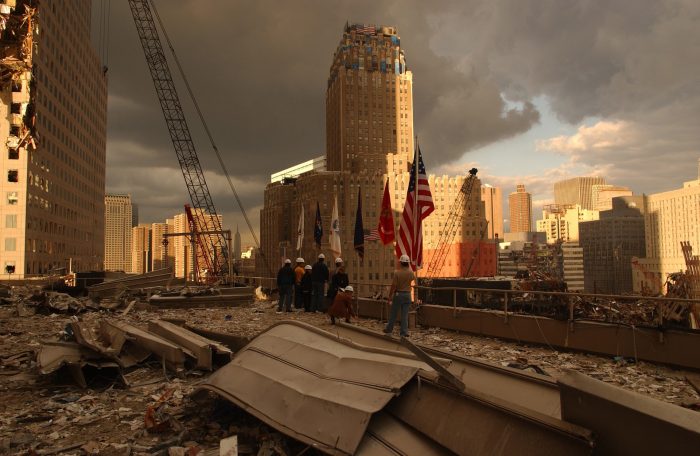
Following nine-eleven (9/11/2001), Georg Bush declared war on terrorism at the time; the "war on terror," as it was called. It was the war against Islamic jihadism in the Middle East, in which the United States was the leader. You can find a lot about it on Wikipedia (see, for example, the links below).
More on the fight against terrorism on Wikipedia: Dutch, German, English.
It is notable that in response to Hamas' invasion of Israel on Oct. 7, 2023, Netanyahu said that this was Israel's nine-eleven. By this he was actually saying that the fight against terrorism was still in full swing and that now Israel was involved in it. We are now over a month on and have seen how in all major cities in Europe Muslims are behind Hamas and apparently share the same objectives.
This means that we have come to an important point in history, which is that both the rich West and Israel are at war with Islam worldwide. It has never been clearer than in our time.
It is the run-up to God's judgment
- about Israel who will be trampled underfoot and put to death. Only a small portion will be saved, the so-called "remnant" (e.g. Revelation 12:6);
- about the rich, "Christian" Western world, the great Babylon, which will be destroyed by the same beast (see Revelation 17:16-18:24).
What we haven't talked about yet - and what Schoor also had no knowledge of when he wrote his book - is the whole business of Covid in the years 2020-23. This, too, is something that happened to us suddenly, causing societal anxiety and prompting calls for government intervention. In that respect, it was like a sudden attack of terror.
What was also special and immediately noticeable was that the fight against this attack was coordinated worldwide, as if a global power was working behind the scenes to determine how all citizens should behave. It was a true reign of terror that was carried out at the time, at least many people experienced it that way and are still struggling with the consequences.
We are currently in the situation where global threats - of violence and war, climate or disease - are used by global governments to institute global measures - usually restrictions on freedom. Where the familiar command is, "you do it for the other, we do it for each other."
The fifth seal of the scroll
When we talk about the horsemen being released at the breaking of the four seals, we have in the previous article seen that these are the armies of Satan - demons - who do their work on earth by using people for that purpose. Schoor actually assumes that each horseman is employed for a certain time, but I think such an army stays busy. After all, there is no indication anywhere in the Bible text that they end their work. Therefore, I also assume that the work of the pale horseman - like that of the previous horsemen - will continue.
So what should we expect at the breaking of the fifth seal?
“And when the Lamb had opened the fifth seal, I saw under the altar the souls of them that were slain for the sake of the Word of God, and for the sake of the testimony which they had. And they cried with a loud voice, Till what time, holy and true Ruler, dost thou not judge and avenge our blood upon them that dwell on the earth?
And to each of them was given a long white robe. And it was said to them that they should rest a short time, until also the number of their fellow servants and their brethren, who as well as they were to be killed, should become complete." (Revelation 6:9-11)
It makes clear in an indirect way what is happening on earth, namely, the killing of people who believe in the Word of God and testify of Jesus (or the Lamb, depending on the translation). If we limit ourselves for a moment to the big picture of just the seals, these cannot be people other than those who will be killed during the great tribulation14 make the choice not to bow to the beast. That means it is the great multitude15 is which no one can count, as we can read in the interlude from Revelation 7.
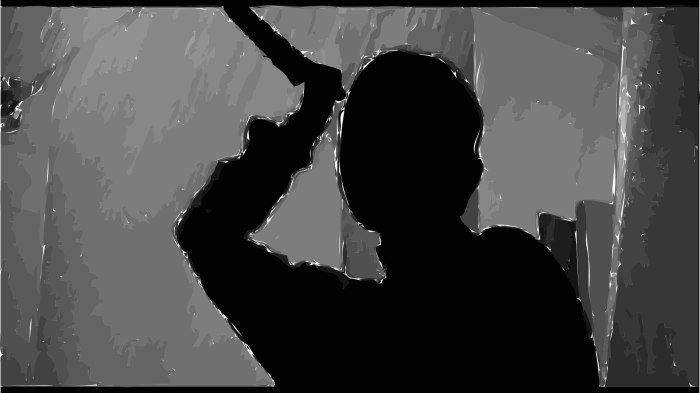
This is also a logical continuation from the fourth seal, the pale horseman. This will develop into the situation where eventually every person will have to worship Satan. If you do not do so because you believe the Word of God and bear witness to Jesus the Lamb, it will cost you your life.
These are not the believers of the Age of Grace in which we still live today - anno 2023. Soon it will be an eye for an eye and a tooth for a tooth, as it also says in other words in Revelation 13:10: "If someone kills with the sword, he himself must be killed with the sword“.
But when now, in the time of grace, a believer dies as a martyr he will not ask for the eternal vengeance of God for his murderers, but on the contrary will ask for their conversion and salvation. As Stephen also did: "And as he fell on his knees, he cried with a loud voice, Lord, do not impute this sin to them! And when he had said this, he expired." (Acts 7:60). In this he was a follower of the Lord Jesus Himself who spoke, "Father, forgive them, for they do not know what they are doing." (Luke 23:34).
So what lies ahead?
Developments continue and they move fast. We have no way of knowing how long it will be or exactly how things will go to their end.
Hatred of Jews and Christians is increasing, even in our country. We may well still face persecution. Why should that be the case in other countries for a very long time and more often than in ours? According to the New Testament, this is part of being a Christian.
But be that as it may:
we look forward to our Lord, Jesus Christ, the Son of God "Who delivers us from the wrath to come." (1 Thessalonians 1:10).

Therefore, let us "(...) be sober, clothed with the breastplate of faith and love, and with the hope of salvation as a helmet. For God has not destined us to wrath, but to obtain salvation, through our Lord Jesus Christ, Who died for us, that whether we wake or sleep, we may live together with Him.
Therefore, encourage one another, and build one another up." (1 Thessalonians 5:8-11).
Come, oh bright Morning Star,
gleaming in the darkness,
yet do not delay thy coming
and display thy splendor.
Yes, You will not leave us alone,
then strengthen this confidence
and then guide us soon,
that we may behold Thee.
Song 82:2 Spiritual Songs (2016)
Footnotes . . .
- It is about the booklet 'Die Dämonen der Moderne' by Johann Schoor. Available in the German language from Amazon in book and Kindle versions. In English, there is a Kindle version titled 'Demons of the Modern Age‘. ↩︎
- See Wikipedia for Modern times. ↩︎
- His website is www.prophetie.at ↩︎
- This in itself is not an argument in favor of this view, merely a statement of what the writer himself says. Each person must determine for himself his views on the matter, regardless of what the writer himself or I think. ↩︎
- Schoor limits himself to the so-called "late Enlightenment" in the 19th century, which is a continuation of the enlightenment in the 18th century ↩︎
- See Wikipedia for general information about the Enlightenment. ↩︎
- A paradigm is a coherent set of views and/or theories that can be seen as standard (or common) at some point in time. They are things that we do not fundamentally question. An existing paradigm can be replaced by a new paradigm; this is called a paradigm shift or paradigm shift. That happened in the Age of Enlightenment. ↩︎
- Schoor applies Matthew 24:10-13 here. ↩︎
- Neo-pagan: new-pagan ↩︎
- Economic opportunities for our grandchildren ↩︎
- It may also have to be interpreted as a territory covering one-fourth of the earth's surface. ↩︎
- There are Bible passages where instead of death, the word plague is used. For example, in Leviticus 26:21-26 and Ezekiel 14:21, where all four causes of death are also mentioned as a judgment of God. ↩︎
- ABC: Atomic, Bio and Chemical Weapons ↩︎
- By great tribulation I mean the time after the antichrist sits down in the temple and pretends to be god (2 Thessalonians 2:4). ↩︎
- See also in this blog: https://goddienen.nu/wat-worden-zal-uit-wat-nu-is/ ↩︎
